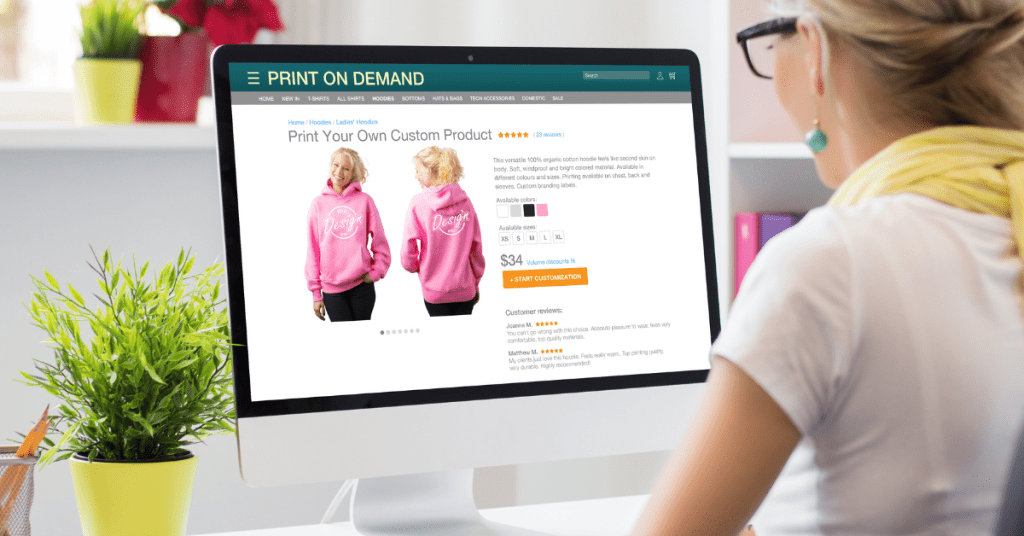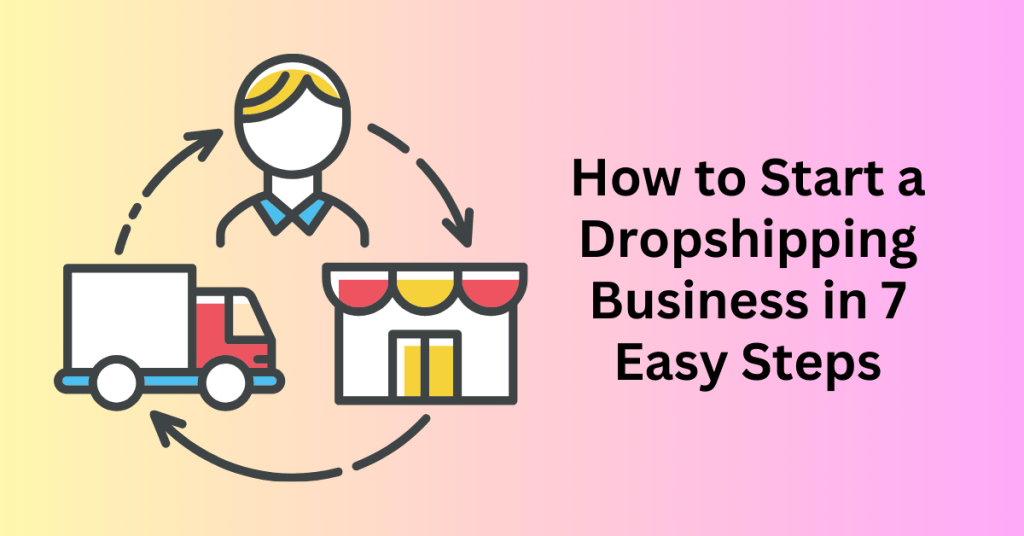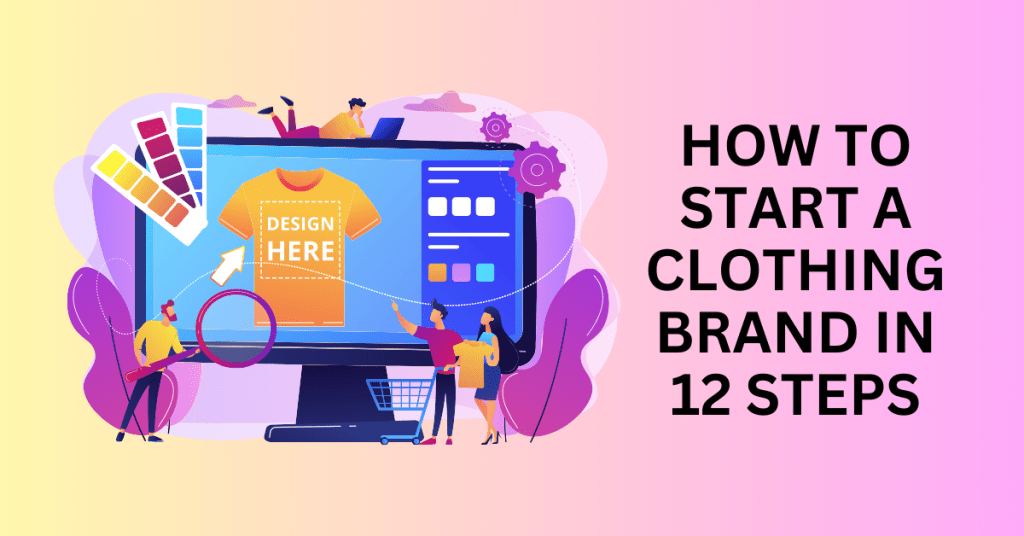As an Etsy seller, participating in Etsy Offsite Ads opens up opportunities to be featured on larger marketing channels, extending product visibility and potentially boosting sales. Understanding how Offsite Ads operate and the partner sites involved can help sellers leverage this program effectively to enhance their listings and increase exposure.
Etsy’s Offsite Ads program promotes Etsy listings on external marketing channels beyond the Etsy platform. This includes prominent platforms such as search engines, social media sites, Etsy Publishing Partner sites, and the Google Display Network. When a shopper clicks on an offsite ad and makes a purchase within 30 days, sellers pay a commission ranging from 15% to 12% of the sale amount.
Start Your Etsy Print On Demand Store Today
What Are Offsite Ads?
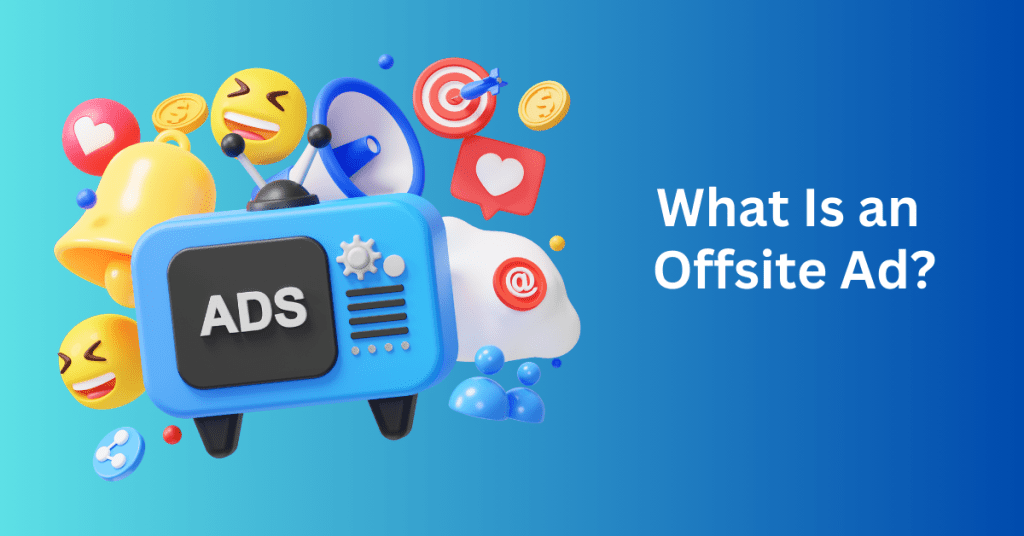
Offsite Ads promote online advertisements on external websites or search engines. Etsy’s platform does not host these ads; instead, it displays them across a variety of partner sites and services. Etsy utilizes a sophisticated algorithm, along with a team of advertising experts, to analyze shop listings and determine which ones to promote as Offsite Ads.
The Reach of Etsy’s Marketing Network
Etsy collaborates with multiple online businesses to create a broad and impactful marketing network. This network encompasses several prominent online platforms, providing significant market reach for any Etsy storefront. The Offsite Ad channels include:
- Bing
- Google Display Network
Additionally, Etsy has partnerships with various partners through Etsy’s Publishing Partners group. This group consists of independent third-party sites such as blogs, influencers, and other online services.
Eligibility and Requirements for Offsite Ads
Each advertising channel has specific requirements that determine whether shop listings are eligible to appear as promoted products. Etsy sellers must familiarize themselves with these terms and policies to understand how their products may be featured.
Benefits of Offsite Ads for Etsy Sellers
Offsite Ads offer several advantages for Etsy sellers:
- Increased Visibility: By appearing on high-traffic websites and search engines, your products gain exposure to a broader audience.
- Targeted Advertising: Etsy’s algorithm and advertising experts ensure that your listings are promoted to the most relevant audience, increasing the likelihood of sales.
- Extended Reach: Partnering with major platforms like Google, Facebook, and Instagram allows your products to reach potential customers who might not visit Etsy directly.
- Cost-Effective Marketing: Etsy manages the entire advertising process, so sellers can benefit from professional marketing without needing to invest in separate advertising campaigns.
- Traffic Diversification: Offsite Ads drive traffic to your shop from various sources. This can reduce reliance on Etsy’s internal search and increasing overall shop traffic.
By leveraging Offsite Ads, Etsy sellers can significantly enhance their online presence, attract more customers, and ultimately increase sales. For more detailed information, it’s advisable to review the specific terms and policies related to Etsy Offsite Ads Channels.
Start Your Etsy Print On Demand Store Today
How Does the Etsy Offsite Ads Program Work?
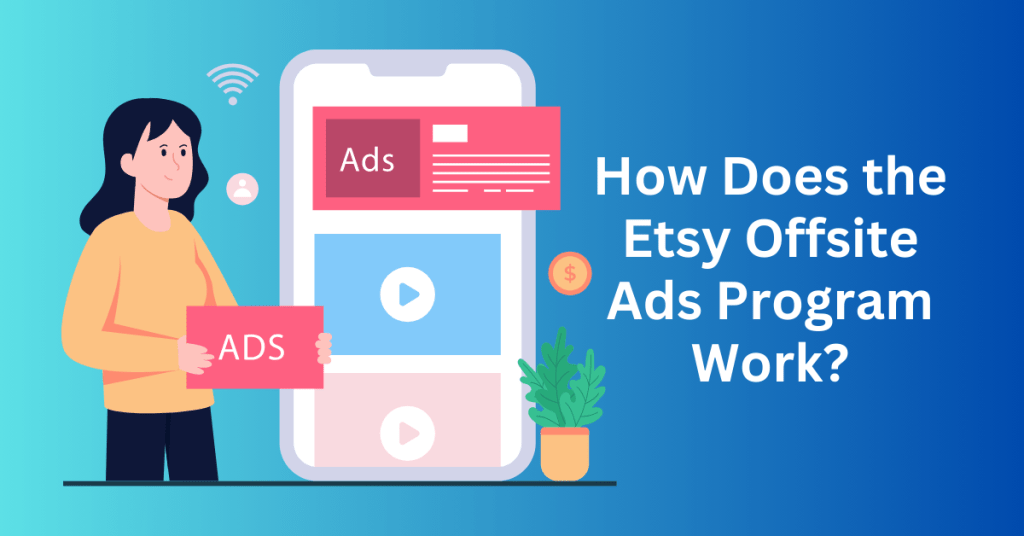
Every seller is automatically enrolled in Etsy’s Offsite Ads program. Etsy selects and promotes products from sellers whose listings meet specific advertising criteria. These criteria include:
- Advertising Policies
- User Search Trends
- Popular Keywords
- Titles and Meta Tags
- Images and Descriptions
Besides, Etsy advertises optimized listings on external sites to attract more potential buyers. When successful, this results in increased sales for the seller, with Etsy earning a commission from the advertising fees.
What are Offsite Advertising Fees?
Etsy’s Offsite Ads fees are charged when a customer purchases a product through one of these ads. The fee is a percentage of the total product cost.
In addition, these fees have a 30-day tracking period. If a customer makes a purchase within 30 days of clicking an ad, the seller is charged an advertising fee for each sale generated by that customer. After 30 days, the customer’s data is reset, and the Etsy fee no longer applies.
Offsite Ads Fee Breakdown
Etsy’s Offsite Ads fees are based on the total revenue an Etsy store has generated over the past 365 days. On the first of each month, Etsy reviews store revenue to apply the appropriate rates:
- A 15% fee on each sale if an Etsy shop has made less than $10,000 in the past year. Sellers in this category can choose to opt out of Offsite Ads.
- A 12% fee on each sale if an Etsy shop has made $10,000 or more in the past year. Sellers in this category are required to use Offsite Ads.
For stores that operate in currencies other than USD, ad fees are calculated by converting the order amounts to USD using the fixed currency exchange rates at the time the sale was processed.
How to Get Your Listings To Appear More on Etsy’s Offsite Ads

Offsite Ads are a great way to increase conversions. To make it a reliable and consistent marketing strategy, you need to learn how to improve listing quality and optimize for customers.
Use Short and Compelling Product Titles and Descriptions
To maximize the effectiveness of your listings, start by focusing on crafting precise and succinct product titles. This approach helps in attracting only the most relevant shoppers, ensuring that potential buyers immediately understand what you are offering. Additionally, it minimizes the need for intrusive advertising, enhancing the shopping experience.
Key Strategies for Product Titles:
- Competitor Research: Conduct thorough research to avoid titles that are identical or overly similar to those of competitors. Unique titles help your products stand out in a crowded marketplace.
- Concise and Clear: Keep your product titles to 70 characters or fewer. This length is ideal for readability and search engine optimization.
- Primary Keyword Focus: Include one primary keyword that best describes your product. This boosts your listing’s visibility in search results.
- Proper Grammar and No Special Characters: Use clear, grammatically correct language and avoid special characters to maintain a professional and trustworthy appearance.
Crafting Effective Product Descriptions:
- Objective and Informative: Write product descriptions that are factual and free of unnecessary upselling. Provide a straightforward account of the product’s features and specifications.
- Customer Benefits: Explain how the product will benefit the customer, addressing potential questions and concerns.
- Simple, Clear, and Friendly Language: Use branded language that is simple, clear, and friendly. This tone helps in building a connection with your audience.
Enhancing Search Visibility:
Instead of overloading your product title with keywords, utilize Etsy tags to incorporate secondary keywords. This strategy increases the chances of your products appearing in search results without compromising the quality and readability of your titles.
Adhere to Etsy’s Policies
To make the most of your presence on Etsy, it’s crucial to align your listings with the platform’s policies and guidelines. Taking these steps not only helps maintain good standing within the marketplace but also increases the likelihood of partner sites promoting your products. Firstly, start by familiarizing yourself with all of Etsy’s marketplace standards and ensure your listings comply with these standards. This compliance ensures that your listings can be used as promotional material, highlighting the best examples on partner sites.
Besides, you need to maintain a positive reputation on Etsy as the platform’s success is closely tied to your reputation and sales. By adhering to best practices, your listings have a better chance of being featured prominently. In addition, you should also avoid listing items that infringe on intellectual property rights, such as copyrighted content, stolen product images, or plagiarized descriptions. Consult Etsy’s list of prohibited items to ensure full compliance and avoid any potential issues.
On the other hand, you can engage with Etsy’s partnered channels by reading the Channel Information and Channel Terms in the policy section. Understanding the benefits and rules of participating in these channels can significantly increase your chances of appearing on partnered sites. Pay close attention to guidelines regarding restricted, spam, or misleading content, as well as the site’s conduct and liabilities. This knowledge will help you navigate the promotional opportunities effectively.
Optimize your visual content by limiting the use of watermarks and promotional text on your images. Focus on showcasing the products themselves, as partner sites may prohibit marketing tactics that over-promote or reduce ad quality. Avoid using cluttered backgrounds or borders, as these can negatively impact the quality of your ads and affect what Etsy chooses to advertise.
Start Your Etsy Print On Demand Store Today
Set The Right Product Price
To determine a competitive price range for your items on Etsy, start by researching similar products. This research will help you find a price that is attractive to customers while still allowing you to make a profit. If your products are of higher quality or offer better value, you don’t need to compete solely on price. Instead, you can either keep your prices low to attract budget-conscious shoppers or highlight the advantages of a premium purchase to justify a higher price.
Initially, decreasing the cost of your products to a competitively low price can be an effective strategy to drive traffic to your Etsy store. This approach is particularly useful for gaining visibility and attracting customers in the early stages. Once Offsite Ads generate a significant portion of your sales, you can focus on balancing any revenue losses that may arise from lower pricing.
It’s important to remember that offsite advertising comes with costs. Many Etsy sellers who benefit from external ads and partner checkout services often offset the Offsite Ads fee by raising the prices of their promoted products. This adjustment is especially necessary for listings with already low-profit margins, ensuring that the additional advertising costs do not erode profitability.
In addition, to refine your pricing strategy, closely monitor your Offsite Ads performance. Any order attributed to Offsite Ads can provide valuable insights for price approximation. Navigate to the Etsy Stats page under Shop Manager to access detailed data on store rates, spending, views, clicks, revenue, and other Etsy Ads metrics. Analyzing this data will help you calculate an appropriate and competitive price for your products.
Provide Clear Shipping Details and Policies
Shipping costs play a crucial role in influencing a potential buyer’s decision to make a purchase. To build transparency and trust with your customers, it’s important to define clear shipping details upfront and provide reminders throughout the product delivery process.
To manage shipping effectively on Etsy, navigate to the Shipping Settings in the Settings menu of your shop dashboard. Here, you can create or edit custom shipping profiles tailored to your products and business needs. Ensure that you have added fixed processing and transit times or set up automatic estimates using calculated shipping, particularly for shops based in the US or Canada.
Consider implementing strategies to boost conversion rates, such as offering free shipping. By covering shipping fees yourself, you can position your products more competitively by reducing the overall cost for the buyer. Another approach is to incorporate shipping costs into the product price, presenting customers with a single definitive price throughout their browsing and checkout experience.
How to Turn Off Etsy Offsite Ads
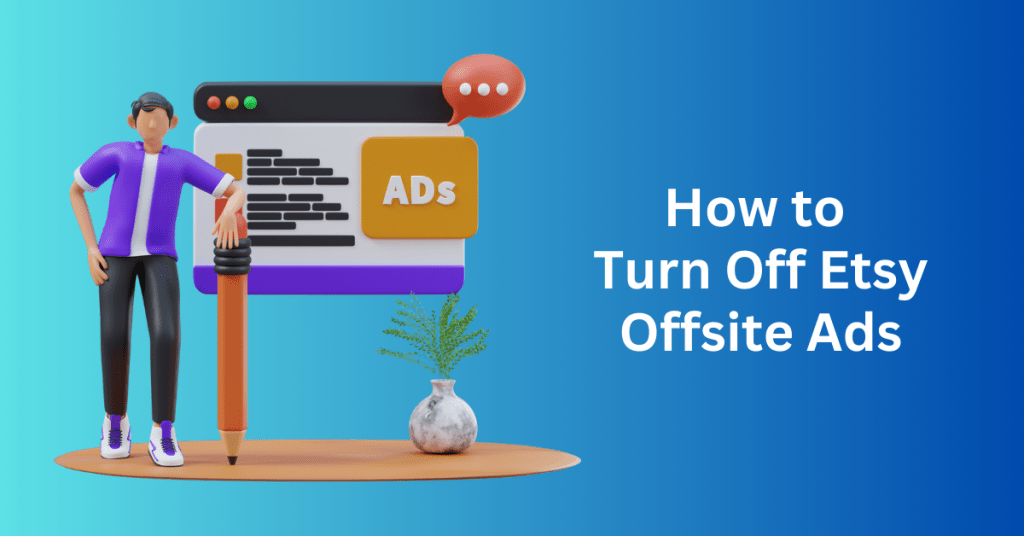
Etsy’s Offsite Ads program is mandatory for stores that generate $10,000 or more in annual revenue. However, for stores earning less than $10,000, there is the option to opt out of this program. According to Etsy’s advertising policy, eligible stores must participate in Offsite Ads for the lifetime of the shop but benefit from a discounted 12% advertising fee.
For sellers who are not required to participate but wish to opt out of paid advertising via Offsite Ads, Etsy provides a straightforward process. To do so, navigate to the Settings menu in your Shop Manager on Etsy and click on the “Offsite Ads” page within the menu selection. Scroll to the bottom of the Offsite Ads page, where you’ll find a link labeled “Stop promoting my products.” After clicking this link, carefully read the disclaimer provided by Etsy and confirm your decision to stop promoting your products by clicking again.
This opt-out option also gives sellers more control over their advertising strategy and associated costs within the Etsy platform, allowing them to make informed decisions based on their specific business needs and revenue thresholds.
Final Thoughts: How To Increase Etsy Sales With Etsy Offsite Ads
Etsy’s Offsite Ads program extends promotional reach across various ad channels. This includes search engine results, social media platforms, Etsy Publishing Partner sites, and Google Display Network sites. Sellers incur an Offsite Ad fee whenever a user clicks on an ad and completes a purchase within 30 days. The fees range from 15% to 12% of the sale amount.
All sellers have Offsite Ads automatically enabled, except those whose annual revenue falls below $10,000. This will give them the option to opt out of the program. To maximize the effectiveness of advertising on Etsy, sellers should ensure they are offering relevant items that comply with ad policies. It’s important to use clear, organic language in titles and descriptions, include relevant keywords in tags, offer competitive pricing, and provide accurate shipping information.
For many sellers, Offsite Ads contribute significantly to sales volume and represent a net gain due to increased traffic. However, the additional ad fees can impact profit margins, making it a deciding factor in whether to continue or not. Sellers must evaluate whether Offsite Ads align with their business objectives and weigh the benefits against potential fee reductions.
Once a store surpasses the $10,000 annual revenue threshold, Etsy automatically enrols it in Offsite Ads. However, sellers in this category are likely to benefit from a discounted advertising fee. This will make participation more advantageous than opting out. Ultimately, each seller should assess their unique circumstances to determine the optimal approach towards maximizing sales and profitability within Etsy’s advertising framework.

